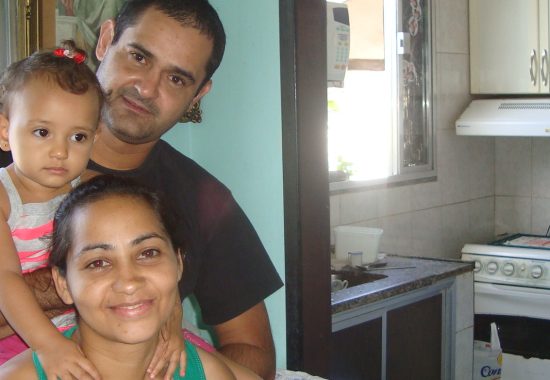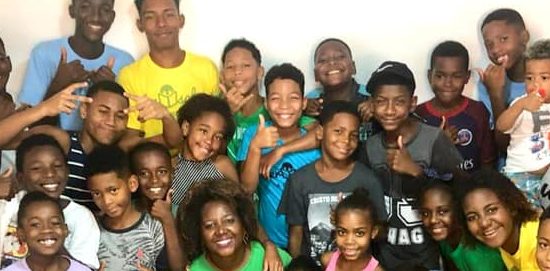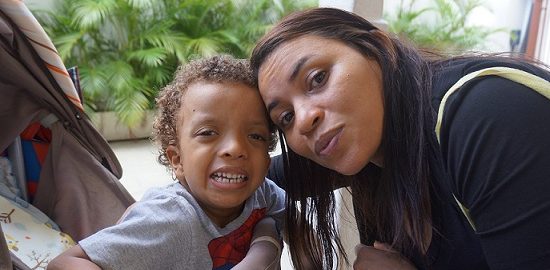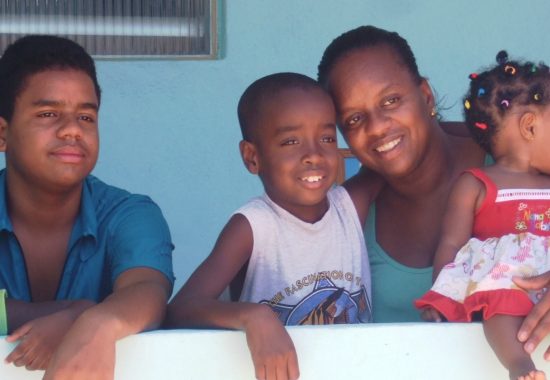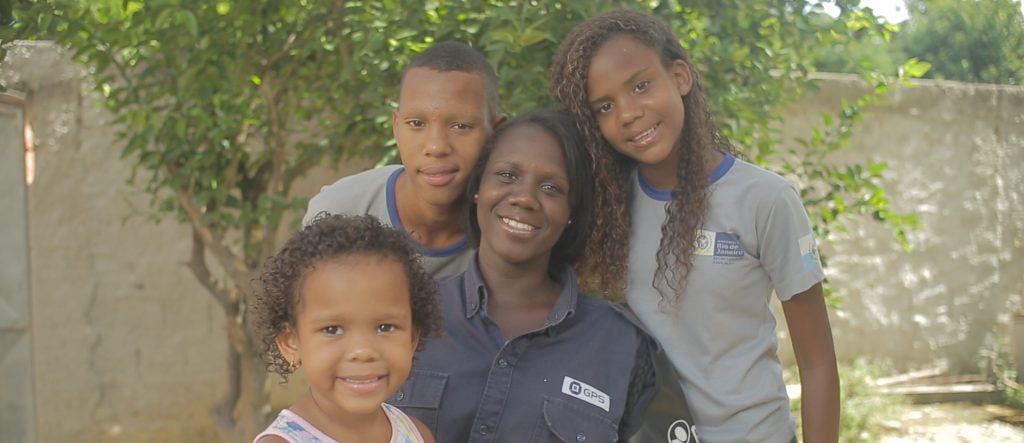

Ana Paula’s Testimony
I have learned to prioritize my education and that of my children at Instituto Dara, because my mother could not afford to give it to me. My mother and my father separated when I was very young. We were five siblings, and my mother had to take care of us all and be our only wage earner by sewing and doing laundry for others. I left school after the birth of my second child. I was 18 years old and was enrolled in the 8th grade (now 9th grade). Today I’m in college.
The very beginning
When we joined Instituto Dara, my eldest son, Weslen, then 10 years old, had been diagnosed with a serious kidney disease after 15 days hospitalized. My youngest daughter was a toddler. And we lived in a small house far away from Dara. I didn’t know how to get around the South Zone of Rio de Janeiro by public transport, and I was carrying a sick child and a toddler. The children’s father was unemployed and could not help us. The only and variable income at home was from my mother’s job.
First, I was welcomed and given support for my son’s medical treatment, which included medications, tests, and transportation costs. Then, I got help for my youngest, who started to have frequent allergies.
But that was not the main change in our lives.
Discovering the path
With my children, I discovered leisure and art. At Dara there was this youth care group, which I loved. My two older children participated in it, and I went along. They held meetings with group dynamics and excursions to tourist attractions, such as the Sugarloaf Mountain, and visits to museums and theaters. Even though they could go on their own, I insisted on participating. Few mothers joined the group; I was one of the most participative mums, though. That was a reality so far away from me, going to a museum. Such a simple thing, but so far from my reality. I experienced what I could not afford to have in my teenage years, yet I was having the chance to be a mother alongside my children. I was able to start being a more present mother.
It was in a group dynamic, with vocational tests, that my middle daughter discovered that she wanted to pursue a career in the military. She began to study with focus on it. But I needed to have some support for when it was over; I wanted to enjoy the Institute as much as I could.
This was also the seed planted by the social work: seeing how social workers dealt with families. It took me a while to realize it, but it was a fundamental inspiration for me.
Finding a vocation
One of Dara’s work fronts is to help us find our vocation. At first, the Institute offered me a hairdressing course. I wanted to seize the opportunity, but I knew I wouldn’t pursue a career as a hairdresser, as I would take someone else’s job who could benefit more from it. I talked to the team and told them I wanted to take a security guard course. They did not have it, but they told me to look for one. I found a quick, 15-day course, and they paid it for me. In no time I started working as a freelance security guard at fairs and events, and there was no shortage of work during the Olympics and the World Cup in Rio de Janeiro at that time. Later, I got a steady job at the international airport.
I left Instituto Dara with a profession and was able to pay for private schooling for my children. Then I started to invest in my own education. I left home at 4 a.m. to arrive at the airport on time. Later, I attended an adult education program. After graduating from high school, I got a job closer to home. I wanted more, though.
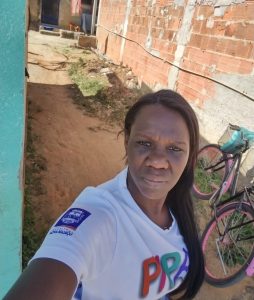 From dream to university
From dream to university
When the time came for me to choose the college to attend, Social Work was a recurring option. I had a will, but it was too far, too expensive, almost impossible.
Then, on a cousin’s birthday, I met a friend who was starting the course. I felt that my time had come.
I went to college for Social Work. Writing was really difficulty to me, since I lacked basics, but I learned at Dara that my obstacles are bigger than my dream.
I did an internship at the Social Assistance Department of Nova Iguaçu, working in two programs: an early childhood support project, with children from 0 to 3 years of age, and another one with pregnant women. There, I try to reproduce the quality service that impacted me during my time at Instituto Dara.
My eldest son, Weslen, is a high school graduate and I pay for a preparatory course for Evelyn, who wants to be in the military, in addition to an English course for Geovana, my youngest.
In the future, they might even say they didn’t want to take the courses, but they cannot say they didn’t have the opportunity to do so. Here at home, they can be whatever they want to be. In 2022, Ana Paula joined Instituto Dara as a Social Work intern.
